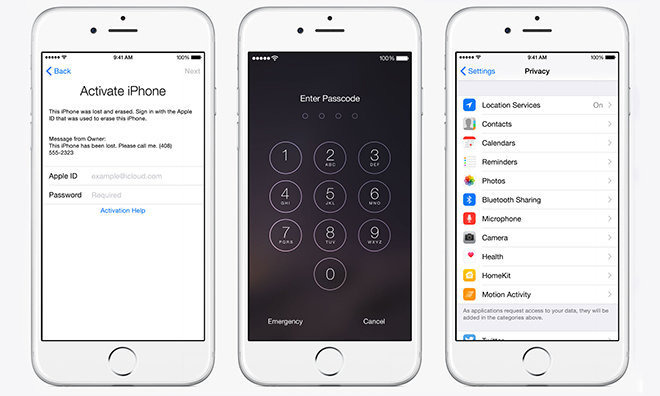As expected, Apple CEO Tim Cook urged White House and government officials to come to terms with strong encryption practices that protect consumer data, at one point saying such intentions should be stated publicly.
Cook's plea came during a cybersecurity summit held in San Jose, Calif., last week, where government officials met with Silicon Valley tech executives to discuss how best to stymie threats posed by non-state actors like ISIS, reports The Guardian.
According to a follow-up report from The Intercept, Cook asked the White House to take a "no backdoors" stance on encryption. Law enforcement agencies, specifically the FBI, have clamored for so-called "weak encryption" policies that would allow access to protected data through supervised software backdoors.
In response, Attorney General Loretta Lynch said a balance must be struck between personal privacy and national security. The current administration is still grappling with the issue and has yet to reach a resolution that would not tip the scales.
FBI director James Comey was among those in attendance at last week's summit. White House Chief of Staff Denis McDonough, counterterrorism adviser Lisa Monaco, Attorney General Loretta Lynch, National Intelligence Director James Clapper and National Security Agency Director Mike Rogers were also present.
Government officials say existing strong encryption techniques employed by Apple, Google and other tech firms make it easy for criminals and terrorists to communicate in relative safety. Cook maintains a hardline stance on the issue, saying that "any backdoor means a backdoor for bad guys as well as good guys." Apple's introduced a nearly impenetrable data encryption protocol with iOS 8, one that the company itself is unable to crack even with the proper warrants.
A document obtained by The Intercept notes summit talks included questions on whether tech companies would be willing to enact "high level principles" relating to terrorists' use of encryption, or technologies that "could make it harder for terrorists to use the internet to mobilize, facilitate, and operationalize." Also on the docket was the potential use of unencrypted data like metadata. Such far-reaching strategies would be difficult, if not impossible, to implement without actively policing customer data.
The summit was held less than three months after the controversial Cybersecurity Information Sharing Act cleared the U.S. Senate floor in October, legislation that would allow private companies to share customer data with government agencies, including the Department of Homeland Security and the NSA. While not labeled a surveillance bill, Apple and other powerful tech companies dispute its merit, saying CISA disregards user privacy.
 Mikey Campbell
Mikey Campbell







-m.jpg)






 Charles Martin
Charles Martin
 Christine McKee
Christine McKee
 Wesley Hilliard
Wesley Hilliard
 Malcolm Owen
Malcolm Owen
 Andrew Orr
Andrew Orr
 William Gallagher
William Gallagher
 Sponsored Content
Sponsored Content








11 Comments
Cops pretty much always consider their task, their rights, to supersede the Constitution, the rights of citizens. The FBI, DOJ, are no different. Better they spend their time perfecting better methods of policing than asking us to give up constitutional freedoms to make their job easier.
And what is Apple doing behind the scenes to support politicians who are not willing to sacrifice our constitutionally protected rights for temporary "safety" from this years boogeymen? Because many of the high ranking Democrats (and many Republicans) would support stripping our rights without hesitation.
Thank you Tim, for standing up for Basic Human Rights.
Those scaremongers have absolutely no right to police our personal lives!
The Paris terrorists didn’t even use encryption.They used SMS to simply text “We’re started now” (or something to that effect). They carried out all the planning using unencrypted means—a news report mentioned them meeting in-person. The SB terrorist woman posted of Facebook her allegiance to ISIS right before the attack. The 9/11 hijackers’ activity alarmed the flight school instructors, who reported it to the government, but it was never investigated.
3 cases where the information was available but never acted on, out of many, and none had anything to do with access to encryption. The Police can’t justify access to encrypted channels if they can’t even handle red flags. They already know when people buy an excessive amount of any substance. They already know when transfers exceed $10K. They have access to many non-encrypted channels and giving them the keys to everyone’s info will just lead to more cases of officers illegally accessing user data.
Meanwhile, there have been literally the hundreds of cases where government agents have accessed private info using their clearance illegally to spy on spouses, exes and people they know or are interested in for non-official reason— cyberstalking love interests to tracking down exes new SOs to harass or threaten them. Out of these hundreds of cases, few are investigated, few lose their job or are even prosecuted for breach of trust and even fewer make the news.